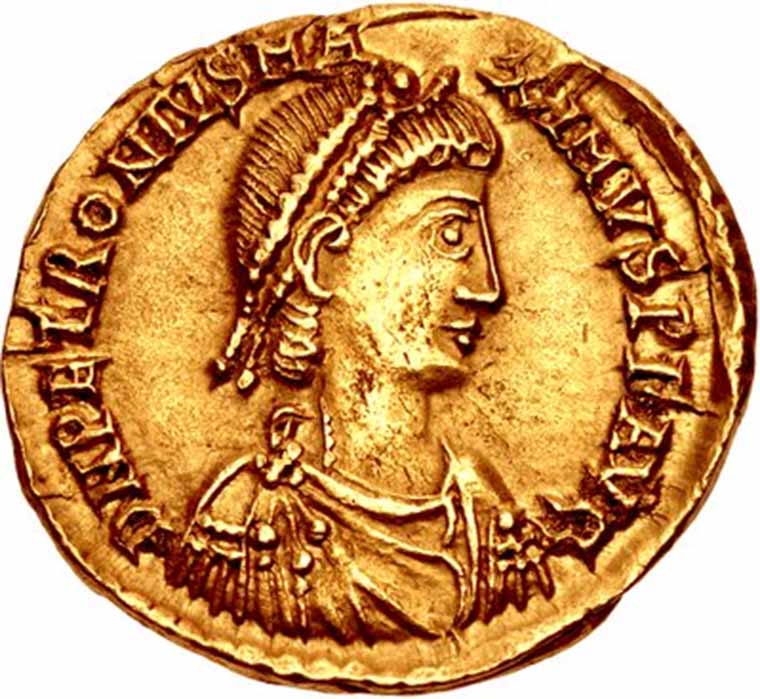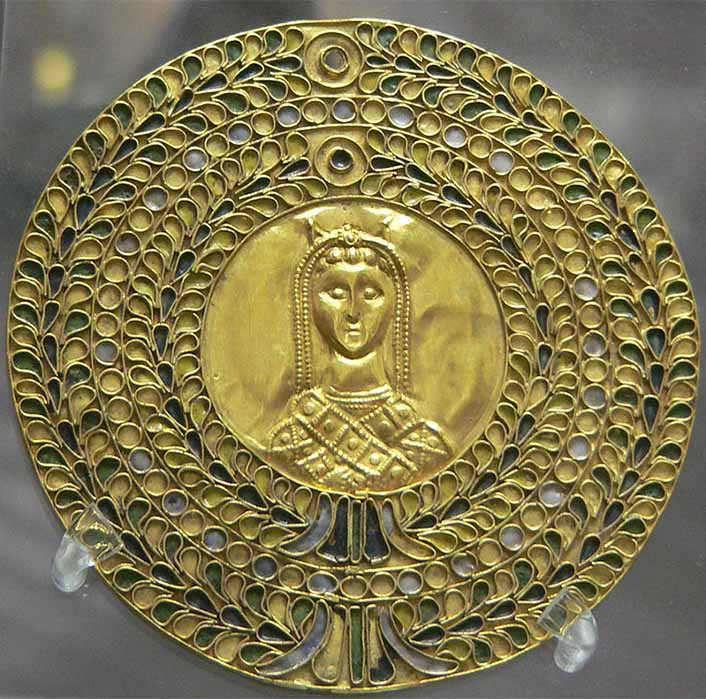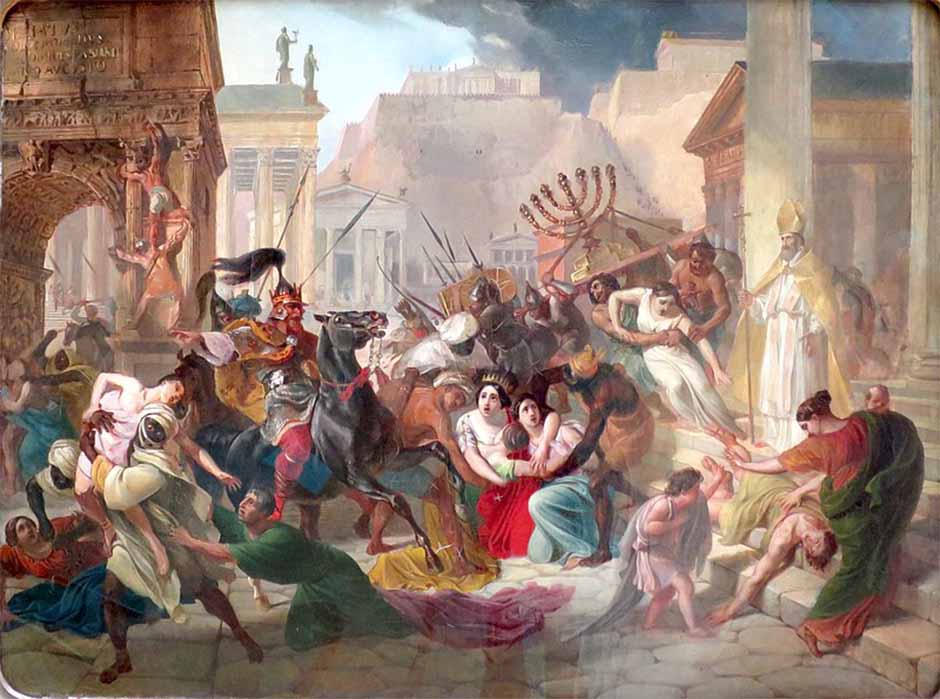
Desperate Lesser-Known Emperors Facing A Disintegrating Western Roman Empire: 455-476 AD
The assassination of Emperor Valentinian III in March 455 AD, heralded the last phase of the Western Roman Empire’s political existence. By then, large parts of its territory were either occupied by untrustworthy federated Germanic ‘allies’ or illegitimately conquered by invaders. With the loss of Africa to the Vandals, the Western Empire lost its last important source of revenue and main source of grain. The army, tried and weakened by decades of repeated military campaigns, had no possibility of regenerating itself. The lack of integration of the new Germanic recruits, enlisted in large numbers to compensate for the loss of interest of Roman citizens to serve in the army, further weakened the army’s cohesion and battle vigor. As a result, it was no longer able to decisively subjugate invaders established on the soil of the Empire or to adequately defend its borders. Within a period of 20 years lesser-known Emperors would ultimately be compelled to defend the last Roman stronghold of the Western Roman Empire, the imperial province of Italy, in a context of political intrigue, treachery and mutiny.

Solidus of Emperor Petronius Maximus (Classical Numismatic Group / CC BY-SA 2.5)
Petronius Maximus (455)
Notary tribune around 415, Petronius was minister of imperial finance around 418. A very wealthy man, he was Praetorian prefect in Italy and then prefect of Rome as consul. Using his personal fortune, he financed the construction of buildings in the Roman forum. Petronius entered the high political sphere in an infamous way, as he was the instigator of the murder of the generalissimo Aetius and then of the western Emperor Valentinian III. When the latter died in 455, opinions were divided over his succession. Valentinian III had no sons and there was no predominant general capable or popular enough in the West to assume the role of Emperor. An influential group supported a certain Maximianus, a former collaborator of Aetius. Another group, which included the Emperor of the East, Marcian, and Licinia Eudoxia, the widow of Valentinian III, supported a man called Majorian, who was later to become Emperor, but in 455 it was Petronius who inherited the purple cloak.

Golden medallion with portrait of Licinia Eudoxia, Empress of Roman Empire (Clio20/ CC BY-SA 3.0)
As soon as he became Emperor, Petronius married Licinia Eudoxia by force. She refused to collaborate with him because she strongly suspected that he was responsible for her husband’s murder. Unable to tolerate the affront, she sought the assistance of the King of the Vandals and Master of Africa, Genseric, and promised the hand of her own daughter, Eudocia - whom Petronius had just married to his son Palladius - to Genseric’s son. As in the past, this request for outside intervention from a barbarian leader in Roman affairs was to be more dramatic, not to say disastrous, for the West than anticipated. When it became clear that Genseric, who was plundering Italy’s coastal cities with his powerful fleet, was heading for Rome, Petronius was so preoccupied with organizing his own escape, that he took no action to organize the defense of the city. Losing all credibility, he was abandoned by his supporters, his relatives and even his bodyguards. Upon leaving Rome, Petronius was assaulted by the populace and massacred. A few days later, the city fell into the hands of the Vandals, who systematically ransacked it. Genseric took with him Licinia Eudoxia and her two daughters, including Eudocia who, once back in Africa, married his son Huneric. Petronius’ reign lasted just over two months.

Genseric sacking Rome in 455, taking Licinia Eudoxia and her two daughters, among which also Olybrius' wife Placidia, by Karl Briullov (Public Domain)
Avitus (455-456)
Avitus came from a rich anddistinguished Gallo-Roman family from Auvergne. Having studied law, he had a very respectable career as an imperial civil servant. A man of many talents, he was Master of Soldiers and then Praetorian prefect in Gaul in 437. It was in this position that he negotiated peace with Theodoric I, King of the Visigoths, on behalf of Aetius. When Attila at the head of the Huns attacked Gaul in 451, Avitus came out of retirement to convince Theodoric I, with whom he had become friends, to join Aetius’ cause against the Huns. This alliance was to be a major factor in Aetius’ victory over the Huns at the Battle of the Catalaunian Fields, although Theodoric I died in the battle. Theodoric II succeeded his father as King of the Visigoths, and a new relationship of esteem quickly developed between him and Avitus, who may have been his guardian during his youth.




